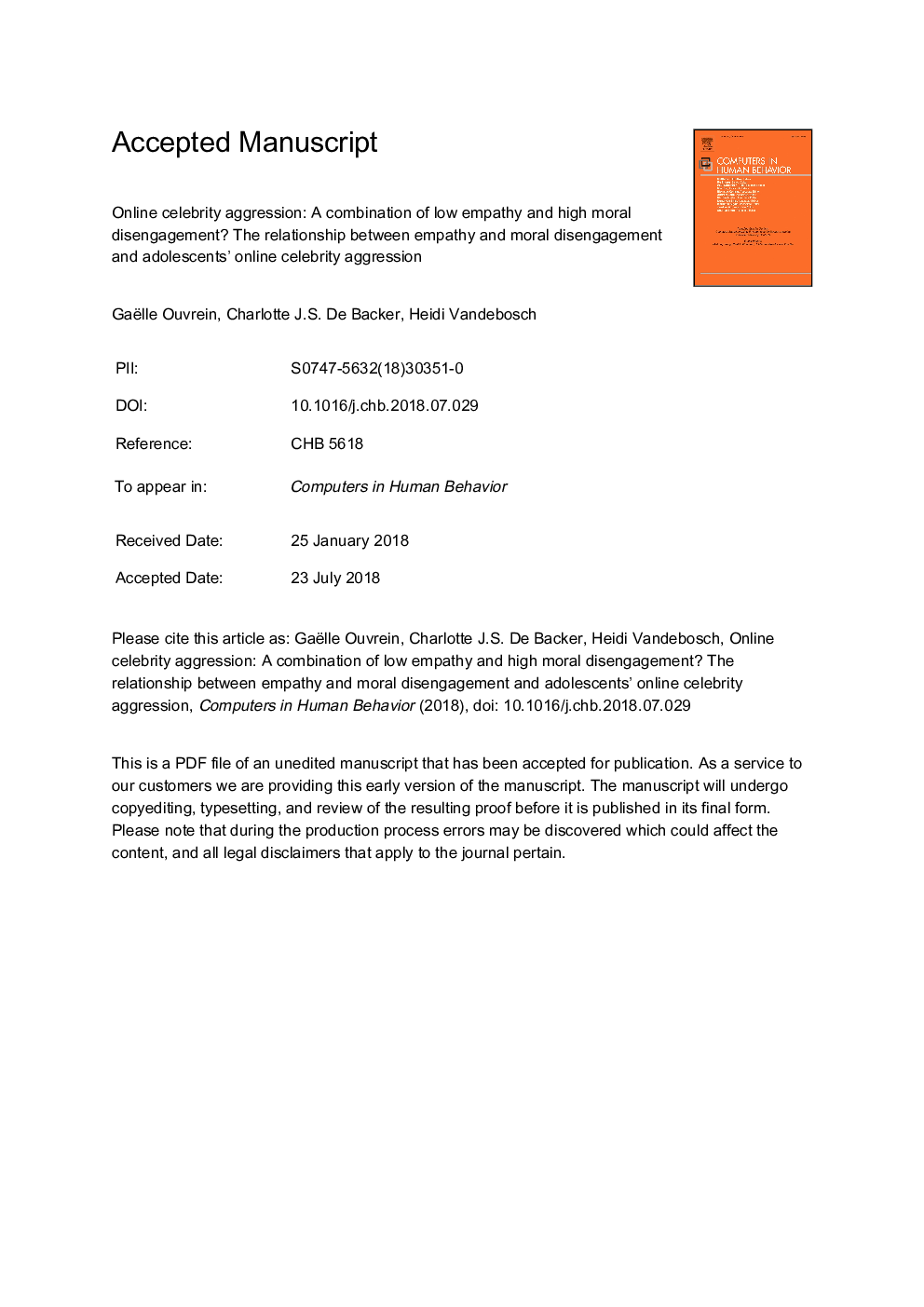| Article ID | Journal | Published Year | Pages | File Type |
|---|---|---|---|---|
| 6835641 | Computers in Human Behavior | 2018 | 36 Pages |
Abstract
Adolescents regularly become involved in online aggression. While existing research mainly concentrated on online peer aggression, some studies pointed to adolescents' aggression toward other targets, such as celebrities. It is known that socio-cognitive characteristics such as empathy and moral disengagement are associated with adolescents' aggression toward peers, but so far it remains unexplored if these traits can also explain celebrity aggression. The current study investigated the relationship between affective and cognitive empathy, moral disengagement and online celebrity aggression. The sample consisted of 1255 adolescents with a mean age of 14.17 years (SDâ¯=â¯0.47). Participants completed the Moral Disengagement Scale adapted to a celebrity context, the Emotional Quotient and a scale measuring mild and severe online celebrity aggression. Structural equation analysis in Mplus indicated that, when controlling for gender and celebrity media consumption, affective empathy was associated with severe and not with mild online celebrity aggression. The cognitive component of empathy was unrelated with online aggression toward celebrities. Moral disengagement was related with mild and severe online celebrity aggression and also mediated the relationship between affective empathy and both mild and severe celebrity aggression. Following these results, strategies aiming at reducing celebrity aggression may benefit from a focus on socio-cognitive characteristics.
Related Topics
Physical Sciences and Engineering
Computer Science
Computer Science Applications
Authors
Gaëlle Ouvrein, Charlotte J.S. De Backer, Heidi Vandebosch,
